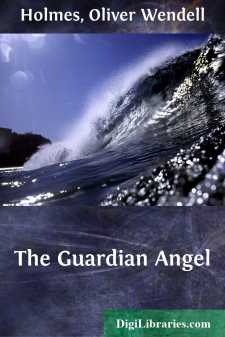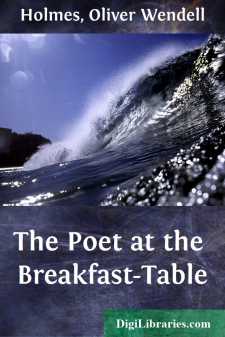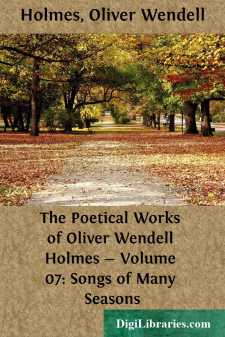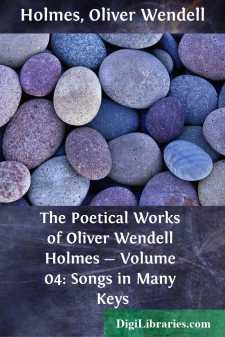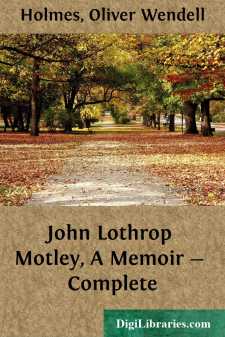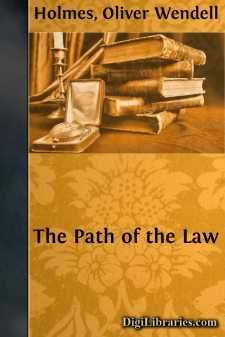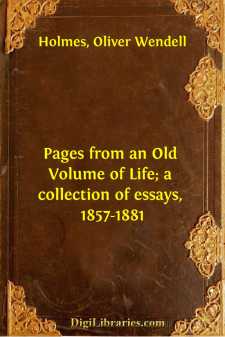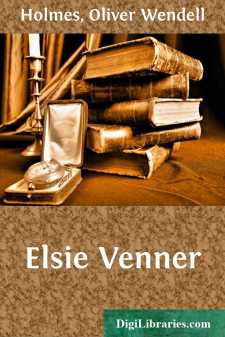Categories
- Antiques & Collectibles 13
- Architecture 36
- Art 48
- Bibles 22
- Biography & Autobiography 813
- Body, Mind & Spirit 142
- Business & Economics 28
- Children's Books 15
- Children's Fiction 12
- Computers 4
- Cooking 94
- Crafts & Hobbies 4
- Drama 346
- Education 46
- Family & Relationships 57
- Fiction 11828
- Games 19
- Gardening 17
- Health & Fitness 34
- History 1377
- House & Home 1
- Humor 147
- Juvenile Fiction 1873
- Juvenile Nonfiction 202
- Language Arts & Disciplines 88
- Law 16
- Literary Collections 686
- Literary Criticism 179
- Mathematics 13
- Medical 41
- Music 40
- Nature 179
- Non-Classifiable 1768
- Performing Arts 7
- Periodicals 1453
- Philosophy 64
- Photography 2
- Poetry 896
- Political Science 203
- Psychology 42
- Reference 154
- Religion 513
- Science 126
- Self-Help 84
- Social Science 81
- Sports & Recreation 34
- Study Aids 3
- Technology & Engineering 59
- Transportation 23
- Travel 463
- True Crime 29
Oliver Wendell Holmes
Oliver Wendell Holmes Sr. (1809-1894) was an American physician, poet, and polymath, renowned for his contributions to literature and medicine. A member of the Fireside Poets, he is best known for his humorous prose and poetry, including works like "Old Ironsides" and "The Autocrat of the Breakfast-Table." Holmes also played a significant role in medical education and practice, coining terms like "anesthesia" and advancing the understanding of contagious diseases.
Author's Books:
Sort by:
CHAPTER I. AN ADVERTISEMENT. On Saturday, the 18th day of June, 1859, the "State Banner and Delphian Oracle," published weekly at Oxbow Village, one of the principal centres in a thriving river-town of New England, contained an advertisement which involved the story of a young life, and stained the emotions of a small community. Such faces of dismay, such shaking of heads, such gatherings at...
more...
The reader of to-day will not forget, I trust, that it is nearly a quarter of a century since these papers were written. Statements which were true then are not necessarily true now. Thus, the speed of the trotting horse has been so much developed that the record of the year when the fastest time to that date was given must be very considerably altered, as may be seen by referring to a note on page 49...
more...
PREFACE. In this, the third series of Breakfast-Table conversations, a slight dramatic background shows off a few talkers and writers, aided by certain silent supernumeraries. The machinery is much like that of the two preceding series. Some of the characters must seem like old acquaintances to those who have read the former papers. As I read these over for the first time for a number of years, I...
more...
OPENING THE WINDOW THUS I lift the sash, so longShut against the flight of song;All too late for vain excuse,—Lo, my captive rhymes are loose. Rhymes that, flitting through my brain,Beat against my window-pane,Some with gayly colored wings,Some, alas! with venomed stings. Shall they bask in sunny rays?Shall they feed on sugared praise?Shall they stick with tangled feetOn the critic's poisoned...
more...
THE piping of our slender, peaceful reedsWhispers uncared for while the trumpets bray;Song is thin air; our hearts' exulting playBeats time but to the tread of marching deeds,Following the mighty van that Freedom leads,Her glorious standard flaming to the day!The crimsoned pavement where a hero bleedsBreathes nobler lessons than the poet's lay.Strong arms, broad breasts, brave hearts, are...
more...
John Motley, the great-grandfather of the subject of this Memoir, came in the earlier part of the last century from Belfast in Ireland to Falmouth, now Portland, in the District, now the State of Maine. He was twice married, and had ten children, four of the first marriage and six of the last. Thomas, the youngest son by his first wife, married Emma, a daughter of John Wait, the first Sheriff of...
more...
PREFACE. The character of the opposition which some of these papers have met with suggests the inference that they contain really important, but unwelcome truths. Negatives multiplied into each other change their sign and become positives. Hostile criticisms meeting together are often equivalent to praise, and the square of fault-finding turns out to be the same thing as eulogy. But a writer has rarely...
more...
10 HARVARD LAW REVIEW 457 (1897) When we study law we are not studying a mystery but a well-known profession. We are studying what we shall want in order to appear before judges, or to advise people in such a way as to keep them out of court. The reason why it is a profession, why people will pay lawyers to argue for them or to advise them, is that in societies like ours the command of the public force...
more...
BREAD AND THE NEWSPAPER. (September, 1861.) This is the new version of the Panem et Circenses of the Roman populace. It is our ultimatum, as that was theirs. They must have something to eat, and the circus-shows to look at. We must have something to eat, and the papers to read. Everything else we can give up. If we are rich, we can lay down our carriages, stay away from Newport or Saratoga, and adjourn...
more...
CHAPTER I. THE BRAHMIN CASTE OF NEW ENGLAND. There is nothing in New England corresponding at all to the feudal aristocracies of the Old World. Whether it be owing to the stock from which we were derived, or to the practical working of our institutions, or to the abrogation of the technical "law of honor," which draws a sharp line between the personally responsible class of "gentlemen"...
more...


